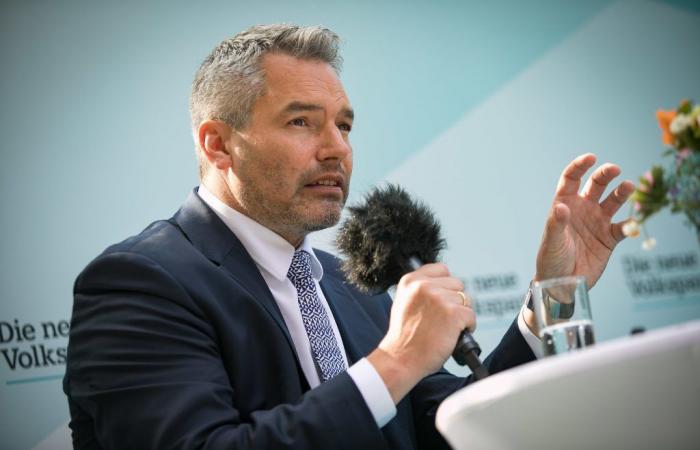For more than three months, the centrist parties had been trying to build a coalition excluding the FPÖ (the Austrian Freedom Party), which came first in the legislative elections with 28.8% of the vote in September. But despite all efforts, the talks failed. Faithful to the principle of the republican front aimed at keeping the populist right at bay, the ÖVP of the conservative Nehammer had attempted to forge an alliance with SPÖ, the social-democrat party. In vain.
Austrian Chancellor Karl Nehammer stuck in Republican front impasse
« We negotiated seriously and transparently, but it is clear that no agreement is possible with the SPÖ on fundamental points » said Karl Nehammer on X. « The People’s Party remains faithful to its commitments: we refuse measures that penalize performance and businesses, as well as any tax increase. This is why we are ending negotiations with the SPÖ and will not resume them. I (…) will step down from both my functions as Chancellor and Chairman of the People’s Party in the coming days and will allow for an orderly transition.”
Increase in taxes and duties on the great fortunesthe breaking point between the conservatives and social democrats
The situation had already become complicated the day before, when the small liberal party Neos abruptly left the negotiations. “ We, the Neos, will not continue negotiations on a possible three-way coalition “, declared Beate Meinl-Reisinger, their leader, criticizing the lack of courage of the other parties to take ambitious reforms, such as raising the retirement age.
The withdrawal of the liberals from the negotiations had weakened the position of the ÖVP and the SPÖ, which, even together, had a majority of only one seat in parliament. This situation made any agreement precarious, especially as the differences between the two parties on key subjects, such as taxation, seemed insurmountable: the ÖVP was firmly opposed to any tax increase, while the SPÖ campaigned to tax large fortunes and inheritances.
In this context, the FPÖ, with its 29% of votes, had become the central player in the political landscape. A coalition with the ÖVP represented the only possibility of guaranteeing a stable majority, but Karl Nehammer was categorically opposed to governing with Herbert Kickl, the leader of the FPÖ, who insisted on leading any government including his party. Stuck between impossible alliances, Nehammer preferred to resign, leaving Austria facing a political crisis and prospects of early elections.






